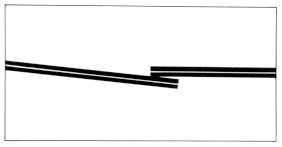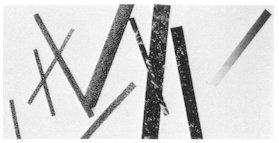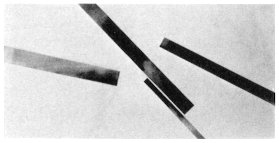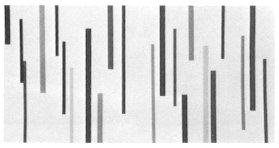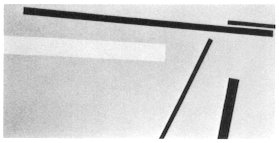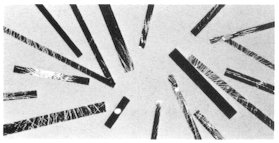|
A notable number of people joined this survey, and it was unexpected that very small number of people used a right-left symmetry shapes or mathematical orders such as a progression in their works. Almost all the people used oblique lines about the direction. However, generally speaking, the works of the rest people who arranged shapes horizontally and vertically or arranged ordered structures were more enriched and in more higher levels compared to the other works. Mondrian and the people in the field of the modern concrete arts have a good sense of balance. Mondrian totally hated the symmetry or mathematical orders, and arranged freely design elements on a screen followed by his sensitivities. In contrast, Bill, Rose, Gerstner et all., in the field
of the concrete arts tried to compose using structures with quantities
of mathematically clear relationships. They seek KOHSEI (Basic Art
& Design) which have beautiful relationships between numbers and quantities.
This is because their sense of beauty is finally pursuing structures with
beautiful shapes like a mathematical formula. Actually, when we are extensively
solving problems on various conditions and intentions in a scene of creation,
we sometimes have a feeling of "divided" or "equation was solved beautifully".
The work often reaches even a very good level. This is because the structures
of balance which is a root of beauty is somehow related to a structure
and its beauty of mathematics as claimed by the people in the concrete
arts.
|
